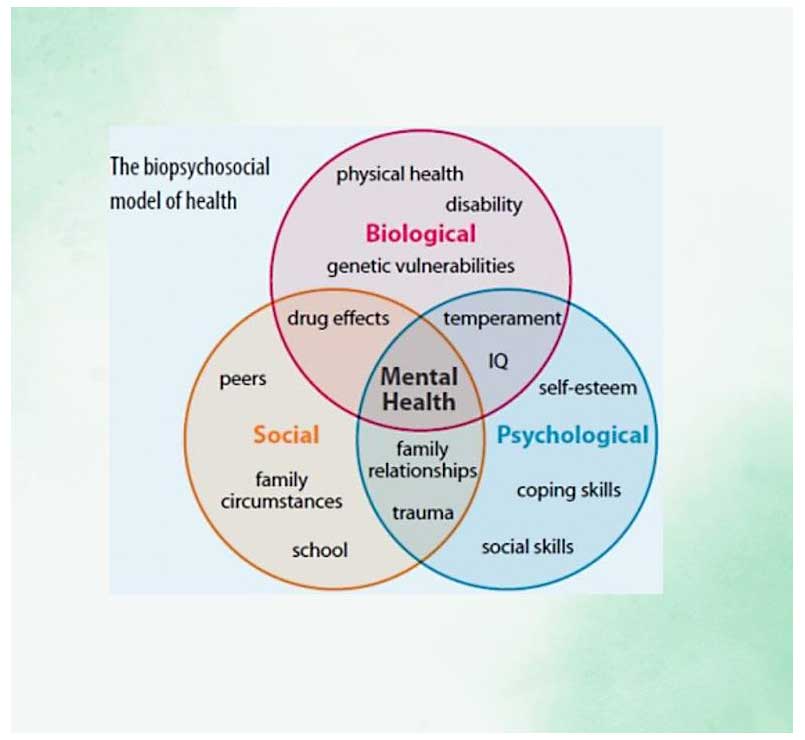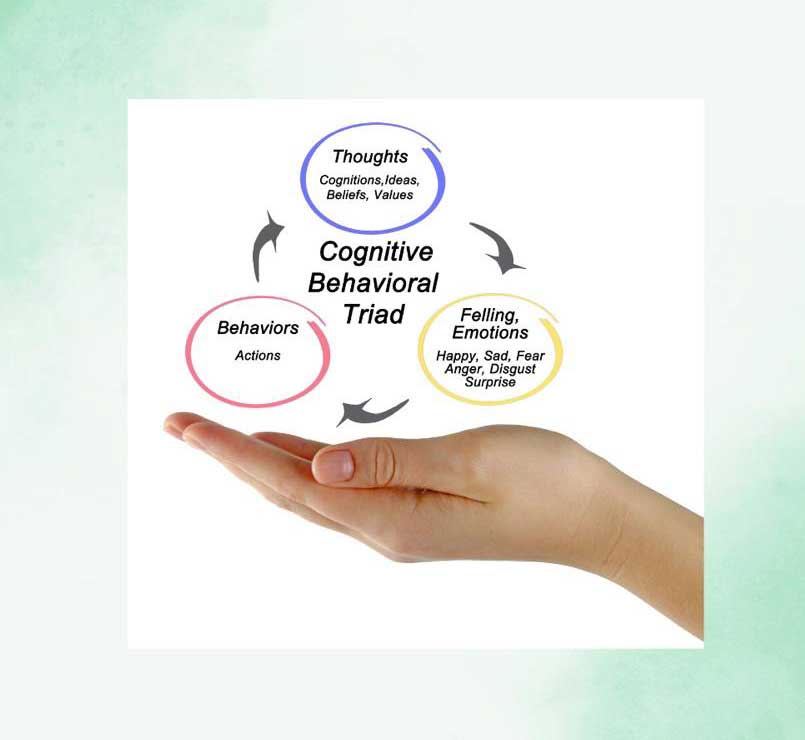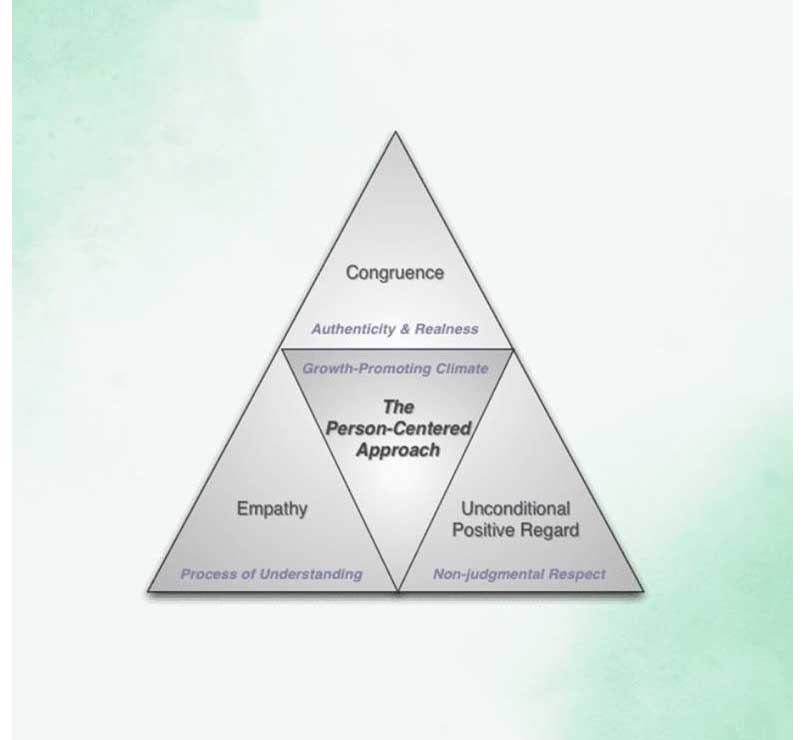
Developmental psychopathology and a biopsychosocial approach
Developmental psychopathology provides a framework to understand the pathways of development of patterns of behaviour that may lead to the difficulties you might be experiencing.
Using a biopsychosocial framework, this approach will help to clarify your current difficulties, that may have occurred through the complex interplay of risk and protective factors across your life[1].
A biopsychosocial framework suggests that health and wellbeing are influenced by biological, psychological and social factors[2].
By considering these domains in relation to your current issues, it may be possible to identify the interplay of risk and protective factors and how these have influenced the difficulties you are experiencing.
[1] Cicchetti, D., & Cohen, D. J. (2006). Developmental psychopathology. Vol. 1: Theory and method. John Wiley & Sons.
[2] Lehman, B. J., David, D. M., & Gruber, J. A. (2017). Rethinking the biopsychosocial model of health: Understanding health as a dynamic system. Social and Personality Psychology Compass, 11(8), 1–17. https://doi.org/10.1111/spc3.12328
Cognitive Behavioural Therapy (CBT)
Cognitive behavioural therapy (CBT) is a talking therapy that can help you manage your problems by changing the way you think and behave.
CBT has been demonstrated to be effective for a range of problems including depression, anxiety disorders, alcohol and drug use problems, and mental illness. Numerous research studies suggest that CBT leads to significant improvement in functioning and quality of life.
CBT is based on the concept that your thoughts, feelings, physical sensations and actions are interconnected, and that negative thoughts and feelings can trap you in a negative cycle.
CBT aims to help you deal with overwhelming problems in a more positive way by breaking them down into smaller parts and usually involves efforts to change thinking patterns.
We will work together to find ways of changing negative thought and behavioural patterns to improve the way you feel, and we will look for practical ways to improve your state of mind on a daily basis.


A person-centred approach
A person-centered approach will provide you with a space conducive to uncensored self-exploration[1]. As you explore their feelings, you will gain a clearer perception of yourself, leading to psychological growth. Using reflection and careful clarifying questions, we will attempt to increase your self-understanding.
Using this approach, I will offer:
- unconditional positive regard – accepting and valuing you.
- congruence – being honest and transparent in how you experience yourself and your world.
- empathic understanding – seeing your viewpoint as if they were you.
[1] Yao, L., & Kabir, R. (2023). Person-Centered therapy (Rogerian therapy). PubMed; StatPearls Publishing. https://www.ncbi.nlm.nih.gov/books/N
Building resilience
Resilience is an important element for wellbeing and is described the capacity to adapt to, cope with or recover successfully to the stressors and setbacks that may threaten your development or wellbeing. Whilst resiliency can occur at an individual level, it requires an ecological perspective involving the relationship of your individual resources, your biology and your environment[1].
Psychological research demonstrates that the resources and skills associated with resilience can be cultivated and practiced, and fostering resilience can lead to improved mental health and wellbeing[2].
[1] Horn SR, Feder A. (2018). Understanding resilience and preventing and treating PTSD. Harv Rev Psychiatry. 2018;26(3):158-174. doi:10.1097/HRP.0000000000000194
[2] Ungar, M. (2018). The differential impact of social services on young people’s resilience. Child Abuse & Neglect, 78, 4–12. https://doi.org/10.1016/j.chiabu.2017.09.024
Examples of difficulties that may bring people to seek support can include:
- Anxiety
- Depression
- Personal relationships
- Relationship problems with family, friends or work colleagues
- Bereavement
- Stress-related problems
- Emotional crisis
- General dissatisfaction with lifestyle
- Difficulty in finding meaning/aims in life
- Post-Traumatic Stress Disorder (PTSD)
- Phobias
- Obsessive Compulsive Disorder (OCD)
- Generalised Anxiety Disorder (GAD)
- Social Anxiety including low self-esteem and confidence levels
- Health Anxiety
- Work Related Stress and Anxiety